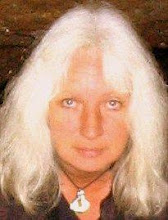
Maori Party MP, Hone Harawira announced last week that the Maori Affairs parliamentary select committee would hold an inquiry into the impact of tobacco use on Maori. He wants the tobacco company executives to front up at an inquiry into the industry. "There is a very clear public record of the serious negative effects of tobacco and the companies selling it must front up to the public", he said. The inquiry would require the New Zealand-based chairpeople and chief executives, not spin doctors, to be involved.
Select committees are able to ask the Speaker of the House to summons people to appear. It is very rare for a Speaker to do so. The Speaker must be convinced that all other avenues have been pursued first. If someone is summonsed and does not appear they can be charged with Contempt of the House, punishment ranging from imprisonment to the requirement of an apology.
 (quite a broad range there really)
(quite a broad range there really)Mr Harawira said he wanted to put the tobacco companies under the spotlight "finally". This is a war against people who kill New Zealanders ... I don't particularly give a shit about what they say (in their defence)."For Hone, Tobacco Production and Marketing is a Colonisation issue. In a speech he gave back in 2006 he said:
"Liberals will say though that smoking is about Maori people making choices. But I say no. HELL NO!!! Smoking is a part of colonisation. Tobacco has had its day in America and Europe, and now they are looking for other places to conquer; places like Africa, Asia, the Pacific, and now China. They're colonising places even America can't get into. And smoking ain't a choice; it's a disease. And just like the flu came with colonisation, so did tobacco. In fact, at the launch of the 2001 Maori Quit campaign, even the Prime Minister admitted that smoking came with the coloniser.
Addiction to cigarettes is also part of institutional racism, because tobacco companies use their structures, their policies and their practices to oppress our people in the same way as government agencies have. These companies are owned by white people driven by a lust for profit. They have no conscience about selling a product that kills our people, and in case you don't believe me, here's a quote from a Tobacco Company Executive who said: "We don't smoke this shit - we sell it. We reserve the right to smoke it, to the young, the poor, the black and the stupid".
Hone points out that there is untold money spent on debating and on legislating the health warnings on cigarette packets, and then restrictions on points of sale, and then on smoke-free workplaces, and then smoke-free bars. Hundred and thousands of hours and millions of dollars are being poured into smoking cessation programmes as well. What this has done is to simply create one industry to manage another.
Which is so true. Allen Carr, author of Allen Carr's Easy Way To Stop Smoking (which I reviewed in my early days on Multiply) would have been right onside with Hone I reckon. He argued that instead of nicotine addiction decreasing through all these programmes, all that was happening was that pharmaceutical corporations were taking over control of the nicotine substance from the tobacco companies. Probably the same rich guys have money in both. An article on his website, Is the Government's Smoking Cessation Strategy Working? states:
"Many of those who championed NRT (Nicotine Replacement Therapy) as an aid to quitting are now backtracking. Nicotine, they argue, should now be administered to addicts, not as a means of quitting the drug, but merely as a “safer alternative” to smoking. So, the objective of nicotine treatment is soon to become a long term (in other words lifelong) maintenance programme with a variety of nicotine products provided for addicts to use for the rest of their lives."
Nicotine is a poison. No matter how you wrap it up, no matter how pretty the package, it is still a poison. All they are talking about here is making a more socially acceptable form of a drug so that non-smokers won't be bothered by cigarette smoke. I cannot see any other benefit.
Allen Carr was so annoyed and frustrated that he wrote a book called The Nicotine Conspiracy: The Scandal The Establishment Don't Want You To Know About.
It is in the interests of the tobacco industry to have us all believe that the current programmes are making any difference at all. As long as we follow that mythology we are merely timewasting at the expense of all of us and our kids too. Basically Hone is looking to have both the Production and Sale of Tobacco to be made illegal for once and for all.



